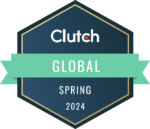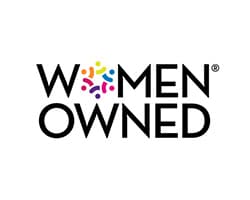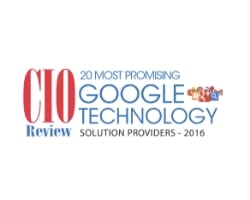In the latest episode of B2B Brand180, Linda Fanaras talks to Jared Reimer, CTO & Founder of Cascadeo.
Reimer offers practical insights on how businesses can stay ahead, adapt, and thrive amidst rapid technological shifts. Linda and Jared also explore the influence of artificial intelligence on B2B Marketing. And, get a peek into Reimer’s unique experience consulting for the hit show ‘Silicon Valley.’
Follow Jared on LinkedIn
You can follow Linda at: https://www.linkedin.com/in/lindafanaras/
and Millennium Agency at https://www.linkedin.com/company/millagency/.
Linda Fanaras: 0:00
Hello, everyone. And welcome to the B2B Brand 180 podcast. Today we’re going to talk about branding, messaging and some lead generation strategies primarily for B2B companies. My name is Linda Fanaras, and I am the CEO and strategist of a Millennium Agency. And today I’m super excited to bring in Jared Reimer. He is the co-founder and president of Cascadio, which is an Amazing top tier strategic partner with AWS, Microsoft, and many other companies. And they were recently bought out by a global organization. So they’re now publicly traded. They’ve been rolled into this publicly traded company. And he was also the tech advisor for this TV show that you, many of me, many of you have may have heard of called Silicon Valley. And he said it would spend one of the coolest things he’s done. So we’ll probably ask him a couple of questions on that as well. And he started a nonprofit in Seattle and they provide free Wi Fi throughout the area, which I think is just fantastic. And a little personal tip about Jared, he’s a world class scuba diver and he’s traveled around the world. So again, just a quick synopsis on Cascadio. They work with companies of all sizes. Including fortune 100 companies. And we’ll, we’ll chat a little bit about that. And he’s a thought leader when it comes to AI and a host of other things. So welcome, Jared. It’s great to have you here today. Yeah. Thank you for having me on the show. Right. So do you want to take a couple of minutes and tell us a little bit about yourself and your come, why you started
Jared Reimer: 1:36
Cascadio? Yeah, absolutely. So I was raised in Washington state outside of Seattle. I moved to the city when I was 17. attended University of Washington undergraduate and graduate computer science. Yeah, I used to be really into diving. I have three kids now, so. Maybe a little bit less than I used to. I still love skiing. I always make a point of getting in as much skiing as I can in the winter. I think it’s good exercise. I like the clean air. I think it’s a good way to kind of clear your mind and do something other than think about work all day. It requires a degree of. Concentration and a style of concentration that I really like. So, I typically try to ski 20 to 30 days a winter which is hard because I have a family and I have a business and there’s travel and there’s all these competing priorities, but it’s one of those things that I always try to make time for. So, so I sold the ISP to another ISP rollup. I went on to run that. We sold that off. I started a company, Cascadio, 17 years ago. We did a data center and virtualization. When AWS first came out, we were one of the very earliest partners and adopters of cloud computing. We were their very first managed services partner, globally, I believe, certified. So we’ve been there since the beginning. We’re all in on cloud, so we no longer do any physical data center network server infrastructure. It’s all cloud computing. And then, as you mentioned even during the first year of the pandemic, we were fortunate enough to join forces with Globe Telecom. Globe is the largest telecoms company in the Philippines, and they are publicly traded. We are a subsidiary of theirs. I guess the other two things I would mention is we have been building Over the last few years, a software product that I’m particularly proud of and which leverages generative AI. And that’s an area that we believe is going to be the most important in the future. So it’s our big bet for 2024 and beyond. Awesome.
Linda Fanaras: 3:36
Well, we’ll get into some questions around that. I want, I do want to make a couple of points. I do agree with you on skiing 100%. I think it helps clear the mind and the elements dealing with the elements definitely helps with the process, especially if you’re running a business or you have a high pressure job. I think it’s always important to take time for yourself and just. Disconnect and rejuvenate yourself. So thanks for that tip. And I also agree with you, like certain things we all can do relatively well. And there’s just certain things that just don’t make sense. So, so as far as Cascadio is concerned, how do you market to potential B2B customers and are there certain strategies that you use to cut through the noise? You know, It’s keeps getting more and more cluttered in the marketplace. How do you tackle that and go about some of those tactics with your product?
Jared Reimer: 4:22
Yeah, that’s a great question. So clearly we’re not going to outspend, you know, Accenture and Deloitte and Capgemini and these massive consulting companies, right? There’s no way we can do that. So we have to outsmart them and the way that we do that is by being the thought leader. So we are always first to market with the latest technology. We are always willing to go be a launch partner for new AWS services. We want to be the evangelist of the most important technologies and innovations. We want to be the ones that not only talk about them, but bring them to customers. And we do that by leading by example and by building it for ourselves. So we don’t evangelize technologies that we ourselves are not using. Okay. And our software product is an example. We’ve learned a lot about how to deploy generative AI. In applications and in enterprise because we’ve been doing it and so one of our big things is no vaporware, right? We don’t sell things that we don’t really know inside and out and we always build some kind of a product or proof point that shows that we’re the real deal And we’re not just talking about it we would rather focus on engineering elegance and platform adoption and building things the right way, even if that’s a limiting factor in terms of growth, because we think in the end quality matters. We end to stand out by being the thought leader and outsmarting and outpacing the larger companies. They always are going to follow. But we have the luxury of being able to go first and there is always a market for people that want to be on the leading edge.
Linda Fanaras: 5:55
And I think it’s important to realize that if companies can employ a strategy where they’re actually building product or services that they can use as a model internally with its product focus, maybe they’re running the alpha and betas internally to make sure that everything is functioning and working properly before they release it into the market, I think is an important step. Companies can. Take advantage of in order to make sure they’ve worked out all the bugs and any issues that could be coming up during that entire development and, testing and launch process. So I think that’s a great strategy that you have into place. A lot of companies should consider tactics like that. When you’re marketing to the fortune 100 companies, we see this every day in our in our space. They’re much different than those smaller companies. They have limited budgets. every little thing is, you know, concern. How do you make sure you target in a very specific way to get the best results. Bang for your buck. I’m wondering how you tackle, how you tackle that piece.
Jared Reimer: 6:55
Yeah, that’s a great question. So to be clear, we do not explicitly try to market or sell to you know, fortune 100 companies. We do work for them when they come to us because they’re referred in. By a cloud provider or by someone else in the industry that knows us It turns out it’s very very hard to sell into those companies and it’s very hard to even get approved as a new vendor Typically, they like to buy from their existing set of vendors And while we’re happy to do it and we’ve done it, we’ve done airlines, we’ve done one of the world’s largest telecommunications companies in the U. S. We’ve done work for one of the largest cloud providers. I mean, we happily will take the work, but we do not actively try to sell into that space. Where we try to sell is the mid market. And the reason for this is they typically have the right mix of business need. Headspace, leadership, vision, budget, and then the most important thing is they typically have a strategic need, like we’re going to build some new product or service, or we’re going to take our existing software product and we’re going to deliver it as software as a service, or we realize that if we don’t modernize, we’re going to lose our customers because our competition is doing it. So companies that have a revenue side or a customer side need, And that have the budget to really do this right? That’s our sweet spot, right? Those are the people that we’re trying to speak to when we happen to pick up fortune 100 business. It’s almost like luck and it’s well, what do they say luck is when preparation meets opportunity. So we’re we’re positioned correctly Occasionally those opportunities appear and if it’s a good fit we take them sometimes it’s not because they’re you know, they can be very difficult to deal with they want everything on their paper They want everything done a certain way But yeah, we, we certainly don’t turn them away. We just don’t try directly to market to them.
Linda Fanaras: 8:50
So on the AI side, and I think I’d like to definitely dig into that a little bit. I think our audience would appreciate getting some insight on AI. It’s starting to become, a little more cluttered. There are all kinds of different tools that are coming up relating to AI. Some people haven’t even experienced it yet, but some people have, especially marketers have really dug deep into the AI space and they use it in their day to day, work environment. And I’m wondering. As it becomes more crowded, first of all, I want to get your take on What do you think about the space and the new implementation of, you know, AI tools that are coming into the market? And then how do you think that that could impact businesses, whether they’re B2B companies or companies that are selling products or services to the market?
Jared Reimer: 9:31
First, I’m going to preface this by saying that there are very smart people who are going to disagree with what I’m about to say, okay? So, admittedly, I am on the end of the spectrum that believes that generative artificial intelligence and large language models are probably the most important invention of our lifetimes. In my mind, This is more important than the internet or the iPhone. It’s more like the invention of electricity. Thomas Edison could not have conceived of the iPhone when he got the light bulb to work. It’s taken a hundred years or so for us to get this far and we keep finding new and interesting use cases for electricity. AI is the same thing. This is the very, very beginning of something much bigger. And so I believe passionately that this is the most important invention in our lifetimes and that every professional class job will be touched by it. Now it’s not going to replace the barbershop or the dentist because those are things that currently require manual dexterity. But, you know, every knowledge work job from stock photographer to medical transcriptionist to journalist, software developer paralegal, junior contract attorney, all of those jobs are going to be impacted. So, there is a legitimate reason for… Some fear that this is going to be disruptive because it is, and it’s going to happen very, very quickly. A lot of people do not seem to understand, the earthquake has already happened, the tsunami has already formed, it’s racing towards shore, and you know, you either ride the wave or you’re going to get flattened by it. There’s not really a middle ground. And so we are strongly of the opinion that there’s going to be a lot of job loss. There’s going to be a lot of disruption, but there’s also going to be huge opportunity. Right. And we would rather help customers seize the moment than watch them get obliterated by a giant wave that in some cases they don’t see coming because they don’t think it’s relevant to their industry or their job. So here’s the other thing I’ll say. The fear, if you look at this through the lens of opportunity is unfounded. It’s also irrelevant. Okay. And it’s irrelevant because there’s no way to slow down or stop or pause this technology now that it’s out in the open. The, the, the hardware is readily available. The software is open source. It’s available to every single person on the planet. You can’t stop it. So the best you can do is be aware of it and try to accept that the technology exists, what is the best path forward given that it happened, right? Given that this is where we’re at and where we’re going, how do you seize it? How do you leverage it to your advantage instead of being obliterated by it?
Linda Fanaras: 12:12
Right. Well, that’s a great answer. I want to just backtrack because, you know, especially if you’re a marketer and you’re in, it doesn’t even matter if you’re just a marketer, the world is constantly changing. And if you don’t embrace the changes. Then you fall behind and then life gets much more complicated than it needs to be. So, and I even look at our space as an example, because when I started, we’d be waxing the paper for the printer to print out like a direct mailer to get it to them. And then we moved into the digital space where we’re doing everything with, software. platforms that allowed us to build out very extensive design files that we could just send to the printer. And then we used to go from traditional media and then we went to digital advertising. It’s like, okay, what is this? And we’re all learning that process. And then we’re all learning social media. So. These types of tools are constantly changing the way that we think and that we act and that we live. And I think it’s important for the audience to, you know, as marketers, we have to constantly be embracing and embrace change, whether it’s here to stay or not, it doesn’t matter. We need to embrace it while it’s here. If you were to fast forward on ai less some of the sort of negative things but more on the positive side of Ways that you envision that tool being used in the future. So we know how it’s being used today. It’s getting implemented in many different types of businesses and many different types of ways from manufacturing to marketing to operations and to legal and so on and so forth. If do you see that? AI will be something like you see it as being something bigger. And if you do, what would that be in your
Jared Reimer: 13:48
mind? Well, so there’s, how does it go to market? And the answer is it’s going to be embedded into everything, just like microchips and transistors are today. So everything you touch, whether you know it or not, has a microchip in it. Even the lightbulb at this point, okay? AI will be embedded into every appliance, every job function, every software application. You won’t have to ask for it, it will just appear. It’s already happening, right? Like, there was early things like, if you shop on Amazon, here’s other products you might like. If you go to Netflix, here’s some movies you might like that was kind of a precursor to it. But in the future you can imagine a scenario where i’ll make it up an e commerce site Speculatively ships you a product that you didn’t even order because they know with a high degree of certainty that you’re going to buy it anyway Right. And they’re willing to accept a 10 percent return rate in exchange for delighting you by anticipating your need. Right. And that sounds crazy, but the technology exists to do that today and we’re almost there in some ways. We’re almost at the point where the cost of speculatively generating content. Speculatively you know, just predicting what customers want before they know to ask for it. All of those capabilities exist. So that’s, you know, that’s going to happen. Now, there’s a bigger question, which is the AGI question. So right now You know, uh, artificial intelligence is kind of specialized into things like making images, making music, making text, like it can write letters, or it can write poetry, or I don’t know, it can write an essay, but there’s a different kind of AI that does not yet exist, and that is something that’s closer to a human, where it can learn arbitrary tasks And is not really limited in terms of the things that can do But instead like a human can basically adapt and learn Take on pretty much any task that a human could take on right? Okay, and that does not exist yet That’s the kind of terminator scenario that i’m sure they’re working on it But we don’t yet have agi at least not to the best of anyone’s knowledge I never thought As a person with a computer science background, I never thought we would get as far as we have, meaning I underestimated how far the technology could be taken. I’ve also been shocked beyond words at the pace of innovation. So nothing in the history of computer science has moved this fast. None of the other innovations. If you look at the number of years it took to get the first million people on the internet, first million people on email, first million people on Facebook, whatever it is. And then you look at chat GPT. And it was instant the minute that they put it out there. They had 100 million users on it, right? So this is a different it’s different in a lot of regards, but to be clear, it’s just the beginning This is just the very tip of the iceberg And much bigger things are coming. Yeah, and if there ever is agi We have a whole nother set of problems because AGI means essentially it can replace a human whereas generative AI augments a human and gives you more productivity and capability, but it doesn’t generally replace your entire job. It makes you more of a supervisor and thinker and less of a doer, but it’s not like you can take. You can rip out the pilot of the airplane and drop in a robot and say, fly it. Even though technically that’s possible, humans are not going to let that happen. No, one’s going to get on a jumbo jet that doesn’t have a captain and a co pilot. So generative AI keeps the humans on the loop. Yep, whereas AGI has the potential to cut them out completely and replace them and those are very very different things Yeah
Linda Fanaras: 17:54
And that’s I think something really important for the audience to keep in the back of their mind is as the technologies You know continues to move forward I did want to just take a moment and thank our audience for listening in today And if they enjoy what they’re hearing so far on AI and from jared, we’d love you to like share or subscribe, definitely share it with your colleagues if you can. I do have a final question for you, Jared, because I am just dying to hear a little bit more about your Silicon Silicon Valley experience, the TV show and how did that all come about? It sounds like it was a really cool experience. I’d love to just have you dig in a little
Jared Reimer: 18:30
bit. Yeah, absolutely. And it was, it was a wonderful, like, once in a lifetime dream come true experience. I was introduced to one of the producers by a mutual friend who knew that I had had experience building. Internet infrastructure in unusual places like a gas station, the basement of a church, a vacant office room. When we were first building dial up internet, we had to put the modems near the customers and out of necessity, we had to build them in weird places because these places didn’t have data center. So my role was to help make the data center in the garage in the show as realistic as possible. This was really, really important to the people producing the show. Every single little detail had to be perfect. And I mean, like it would undergo the greatest scrutiny by a technical expert and always pass the test. This was a high budget HBO production. In every job category, they have the best in the business, you know, photographers, screenwriters, actors, editors, they don’t produce, low quality stuff. That’s their brand. There’s a reason people pay extra for HBO. It’s better, right? They sell to an audience that cares about quality. And so, The show itself was amazing because it was so dead accurate. They had a lot of people that had worked in the Valley and understood the ins and outs of like venture backed tech startups in that era. And they, they did a wonderful job at. Parodying but yet in a believable way. It wasn’t a slight exaggeration Not a ridiculous exaggeration and that’s what made it work, right? That’s why it was so funny is The show wasn’t really that different than reality. It just had a bunch of comedians as the actors and they placed the utmost value on quality and excellence and Making it real and making it believable And I think there’s a lesson there I think there’s a really important lesson from this. A, you know, Silicon Valley is a funny show. That’s obvious. But B quality matters, right? There, some percentage of the population will pay for quality. And I think HBO is a great example. It’s not included in your basic cable subscription for a reason. People subscribe for a reason. The quality of the product is worth the price at least to some segment of the addressable audience, right? Maybe not everyone buys it but for the people who appreciate it. It’s a great value hours of awesome entertainment For really not that much money. A lot of people have been hbo subscribers for decades and would never give it up So for us we aspire as cascadio to be more like that Okay, we would rather do the best work of our lives and build the best possible labor force and Build things that we are proud of and excited about and that we want to show the world That that means sacrificing to some degree scalability Because to scale service delivery and technology oftentimes means making sacrifices that we don’t want to make around quality, around, I don’t know, unique value add there are plenty of lift and shift factories that all they do is just move computers to the cloud. And that’s all they do. They’re big name companies. They’re very big, prominent companies that make a lot of money. But all they do is the same thing all day, every day. It’s a robotic job that is uninspiring to engineers, uninspiring to people like me. I would rather work on an HBO show than work on, I don’t know, some low budget B movie, okay? Now, there’s a market for both, but we, we have to decide as a company what we want our brand identity to be and what audience we want to serve. And I think you know, we would rather win on merit. We’d rather be the best. And that’s not for everyone. Not everyone’s going to pay for it, but for the people that appreciate quality I think that’s appreciated. You know, I think that’s that’s how you win. Yeah,
Linda Fanaras: 22:33
That’s great. So I just want to take a moment and thank you, Jared. Jared Reimer from Cascadio for joining us today. I really appreciate your insight on AI and your company. If you could just let the audience know on how they could get in touch with you, I think that would be fantastic.
Jared Reimer: 22:47
Yeah. Our email address is info at cascadio. com. Our website is cascadio. com as you would have guessed. I’m on LinkedIn. My LinkedIn name is Jared Reimer all run together. J A R E D R E I M E R. And I’m very active on LinkedIn by the way. So, if you’re interested in some of these subjects, I write a lot about them on LinkedIn. And then of course, if you want to contact me personally, LinkedIn is a good way to do it, or my email is jaredjared at cascadio. com.
Linda Fanaras: 23:17
Awesome. So again, I just want to wrap up today. My name is Linda Fanaras, and I am the CEO and strategist of Millennium Agency. I’m happy to bring today to you the B2B Brand 180 podcast, where we talk about all things branding and all things marketing. Again, if you like what you heard today, please like, share, or subscribe. We hope you join in on the next podcast that we have. Thanks a lot.
Jared Reimer: 23:41
I know. Take care.
Linda Fanaras: 23:42
Thank you.





























